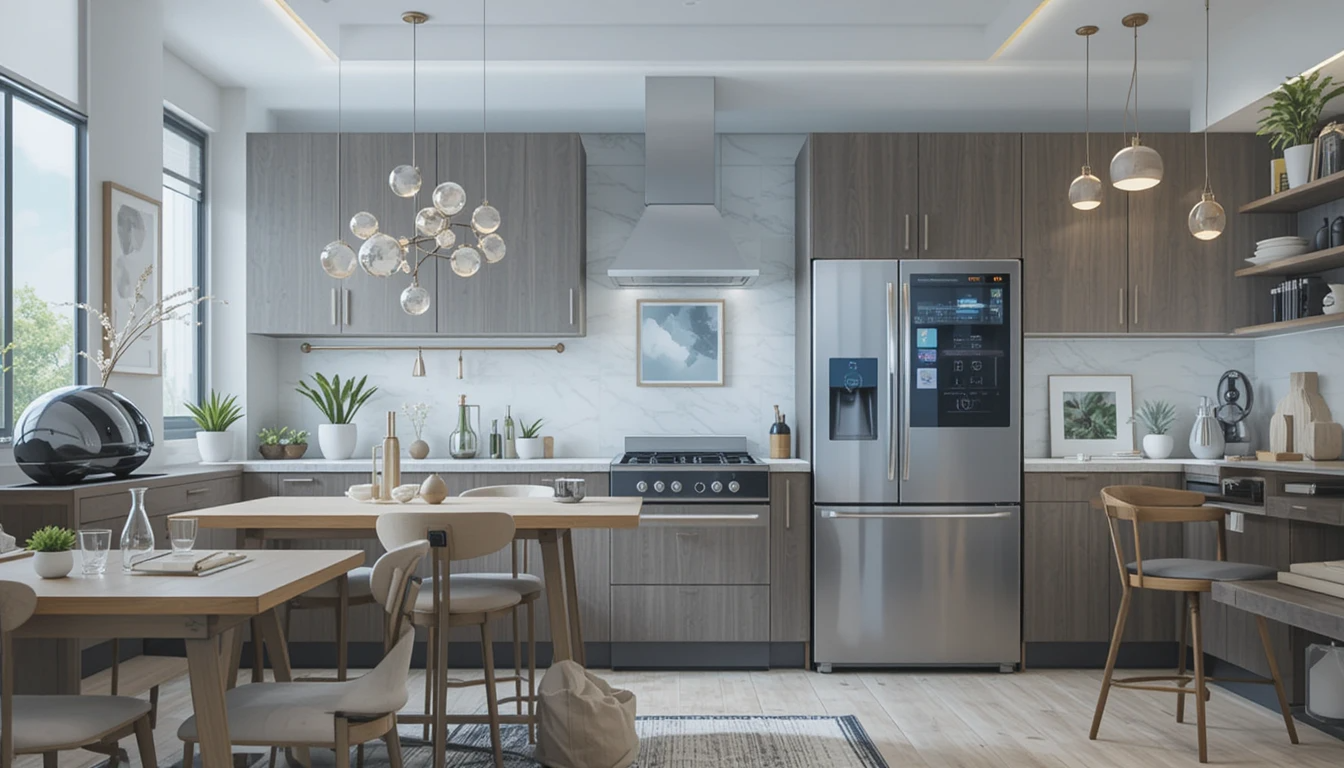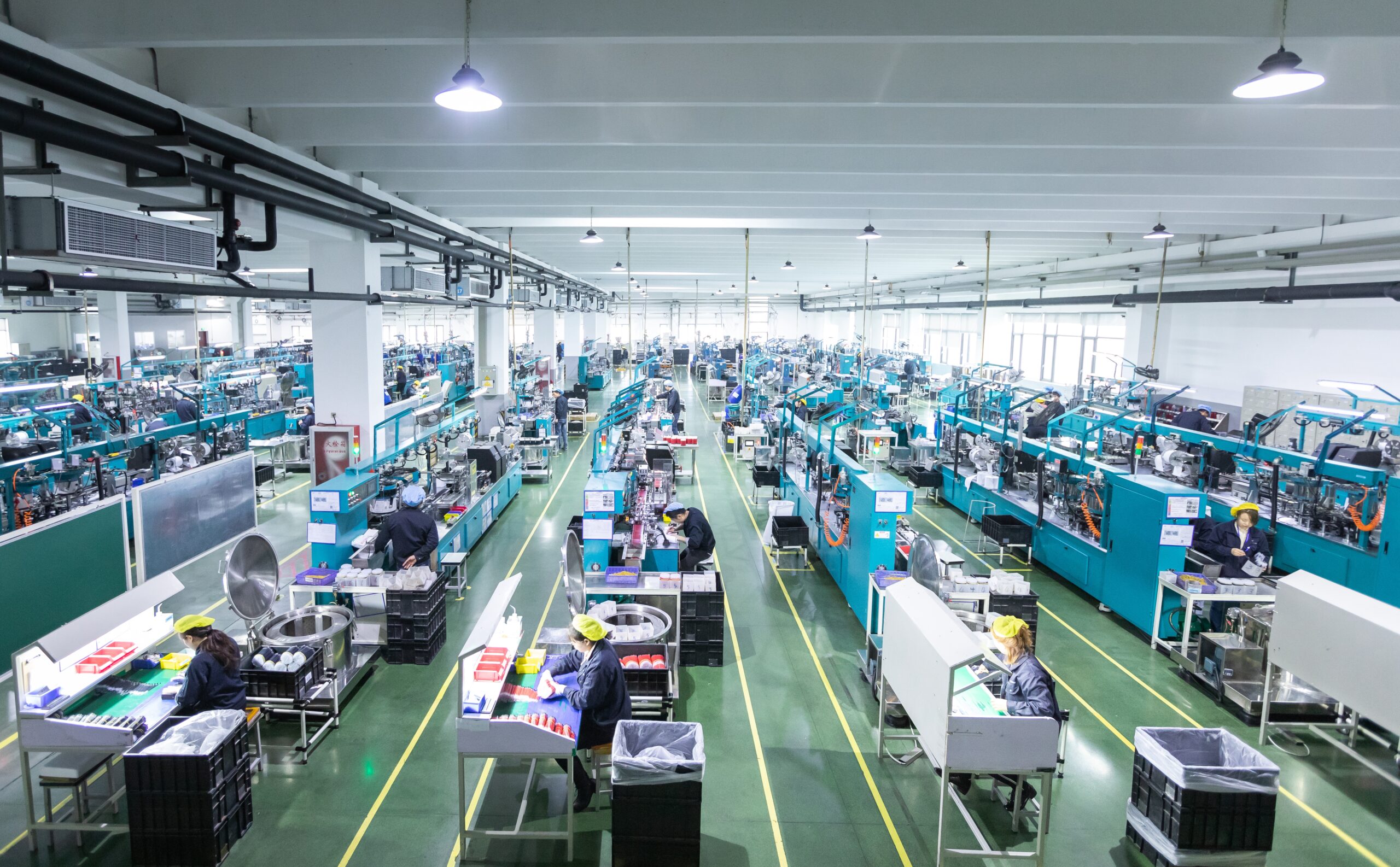Blog
The Future of Smart Appliances in Small Businesses

Smart Appliances: How They’ll Revolutionize Small Businesses
Are you a small business owner tired of sky-high energy bills or food constantly spoiling? Smart appliances might be the answer. These are devices, such as refrigerators, ovens, and thermostats, that connect to the Internet of Things (IoT). This connectivity allows you to control and monitor them remotely. They are poised to transform small businesses. Smart tech can increase efficiency, cut costs, and boost productivity.
Streamlining Operations: The Efficiency Boost of Smart Appliances
Smart appliances automate tasks. They also reduce manual labor. This lets your staff focus on more important work. Forget about tedious, repetitive chores!
Automated Inventory Management
Imagine a smart fridge that tracks what’s inside. It can even reorder items automatically. A restaurant can use a smart fridge. This will help them monitor ingredient levels. It also allows for automatic supply orders from distributors. No more running out of key ingredients during the dinner rush!
Remote Monitoring and Control
Control your appliances from anywhere using your smartphone or tablet. Adjust settings to make sure things run smoothly. Using remote monitoring makes sure appliances run well. Even when you aren’t on-site.
Predictive Maintenance and Reduced Downtime
Sensors in smart appliances can detect potential issues early. This can prevent major breakdowns. You can schedule maintenance when it’s convenient. This reduces downtime and saves money on repairs.
Cutting Costs: Smart Appliances as a Money-Saving Tool
Smart appliances can significantly reduce your operating costs. Energy efficiency and smart resource use are key. They can make a big difference to your bottom line.
Energy Efficiency and Reduced Utility Bills
Smart thermostats, energy-efficient ovens, and other appliances minimize energy use. This translates to lower utility bills. Many businesses see significant savings. Switching to smart appliances helps the environment too.
Optimized Resource Consumption
Smart dishwashers use less water. Automated lighting systems reduce electricity use. A coffee shop can use a smart dishwasher with water usage monitoring. This saves water and lowers its water bill.
Waste Reduction and Inventory Management
Minimize food waste using smart refrigerators and better storage. Smart refrigerators track expiration dates. They can also suggest recipes based on what you have. This prevents spoilage and saves money.
Enhancing Customer Experience: Smart Appliances in Service Industries
Smart appliances can improve service. They can also boost customer satisfaction. This is especially true in the service industry.
Faster Service and Reduced Wait Times
Smart ovens and cooking equipment optimize cooking times. Automated drink dispensers quickly prepare beverages. A faster service will make your customers happy. This will keep them coming back.
Personalized Customer Service
Smart coffee machines remember customer preferences. This lets you offer tailored beverage options. Knowing your customers’ favorite drinks creates a personal touch. That kind of service can set you apart.
Improved Food Quality and Consistency
Precise temperature control in ovens and refrigerators ensures consistent results. Customers expect the same quality every time. Smart appliances make it easier to deliver. This builds trust and loyalty.
Overcoming Challenges: Implementation and Security Concerns
Adopting smart appliances isn’t always easy. There are potential challenges to consider. It’s important to be aware of these issues. Then you can plan accordingly.
Initial Investment Costs
Smart appliances often have a higher upfront cost. Explore financing options and compare different models. Think of it as an investment. The long-term savings can outweigh the initial expense.
Data Security and Privacy Concerns
Cybersecurity risks are a real concern with connected devices. Protect your business data with strong security measures. Use strong passwords and network firewalls. This can keep your smart appliances and data safe.
Integration with Existing Systems
Make sure your new appliances work with your existing IT setup. Integration can sometimes be tricky. Consider consulting with an IT professional.
Conclusion
Smart appliances are more than just a trend. They offer real benefits for small businesses. This includes boosting efficiency and reducing costs. They also improve customer experience. By embracing this technology, you can gain a competitive edge. This will help you achieve long-term success. Start exploring your options today!
